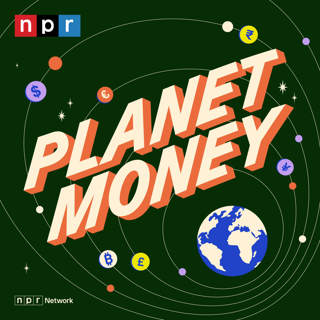
Vacation, and why the U.S. takes so little of it
Do you work more for more money? Or work less for more time? For some, this is the ultimate economic choice.Every single worker in the European Union is guaranteed four weeks of paid vacation. No matter how long they've been at a company. No matter how low paying the job is. Vacation is a right.In fact, all but one of the richest countries in the world guarantees paid vacation, except: the U.S.According to a 2019 study, people in Japan get 10 paid vacation days and 15 paid holidays; in Australia it's 20 paid vacation days and 8 paid holidays; and in Spain it's 25 paid vacation days and 14 paid holidays.And it's not just a rich country thing: Mexico, Afghanistan, Thailand, Tanzania - they all guarantee paid vacation from work, at least in the formal job sector.In the U.S: Zero paid vacation days and zero paid holidays. So, why is the United States the outlier? We go to several labor economists and historians, to find out what makes Americans different from Europeans. It's a winding journey, so maybe put in a request for some paid time off and take a listen!This episode was hosted by Sarah Gonzalez, produced by Sam Yellowhorse Kesler, edited by Jess Jiang, engineered by Maggie Luthar, and fact-checked by Sierra Juarez. Alex Goldmark is our executive producer.Help support Planet Money and get bonus episodes by subscribing to Planet Money+ in Apple Podcasts or at plus.npr.org/planetmoney.Learn more about sponsor message choices: podcastchoices.com/adchoicesNPR Privacy Policy
18 Aug 202325min

Summer School 6: Operations and 25,000 roses
"It's difficult to control everything," says our guest professor for this week, Santiago Gallino. "What is not difficult is to plan for everything." Today we venture into the sphere of business that masters the planning, and backup planning: operations management.It's more than just predicting a bottleneck and imagining a solution, because there's always a bottleneck to clear. It's about modeling, and weighing the costs of messing up vs. missing out. For instance, take a newspaper vendor who has to decide how many newspapers to sell tomorrow morning. Do they buy fewer, knowing that they'll sell out–and then miss out on potential revenue from papers not sold? Or do they order more than they expect to sell, just in case–and eat the cost of a few unsold papers? This type of trade-off applies to all kinds of businesses, and Gallino talks us through how to choose.The only certainty in this life is uncertainty. But we are certain you will come out of this episode feeling better prepared for your future business. And fortunately, there are no bottlenecks in podcasting.The series is hosted by Robert Smith and produced by Max Freedman. Our project manager is Julia Carney. This episode was edited by Alex Goldmark and engineered by James Willetts. The show is fact-checked by Sierra Juarez.Help support Planet Money and get bonus episodes by subscribing to Planet Money+ in Apple Podcasts or at plus.npr.org/planetmoney.Learn more about sponsor message choices: podcastchoices.com/adchoicesNPR Privacy Policy
16 Aug 202332min

The new Biden plan that could still erase your student loans
This summer, the Supreme Court struck down Biden's plan to forgive student loan debt for millions of borrowers. Except, on the same day Biden first announced that plan, he also unveiled another, the SAVE plan. And though SAVE sounded less significant than Biden's big forgiveness pledge, it's still alive and could erase even more student debt.SAVE is officially a loan repayment plan. But through a few seemingly minor yet powerful provisions, many more low-income borrowers will end up paying little or nothing until, eventually, their loans will be forgiven. Even many higher-income borrowers will see some of their debts erased.In this episode, we explain the history of income-driven repayment. And how borrowers could end up paying less than they might expect once payments resume in October. You can read more from NPR's Cory Turner's here.This episode was hosted by Cory Turner and Kenny Malone. It was produced by Emma Peaslee, and edited by Molly Messick. It was fact-checked by Sierra Juarez, and engineered by Robert Rodriguez. Alex Goldmark is Planet Money's executive producer.Help support Planet Money and get bonus episodes by subscribing to Planet Money+ in Apple Podcasts or at plus.npr.org/planetmoney.Always free at these links: Apple Podcasts, Spotify, Google Podcasts, NPR One or anywhere you get podcasts.Find more Planet Money: Facebook / Instagram / TikTok / Our weekly Newsletter.Music: Universal Production Music - "Nola Strut," "Funky Ride," and "The Down Low Disco King"Learn more about sponsor message choices: podcastchoices.com/adchoicesNPR Privacy Policy
11 Aug 202327min

Summer School 5: Tech and the innovator's dilemma
For anyone running a business, technology is both threat and opportunity. Today, we run through techniques entrepreneurs can use to take advantage of new tech or defend against the dangers. It's not just about the product you're selling. It's about consumer psychology, and ethics, and taking calculated risks to navigate uncertainty.But, since this is Planet Money Summer School and we want to set your business on the path to riches, we're going to talk about how to use tech to dream big. Maybe more than anything, technology creates opportunities for the little guys where the big established companies can't be so nimble or have too much to lose. Take the classic concept of the innovator's dilemma: a company that innovated and succeeded, now faces a choice about any disruptive new technology. Do they risk tossing out their existing advantage and switch to the new tech, or play it safe and risk becoming obsolete?Most new technologies don't end up disrupting an industry. So it is totally rational for the big existing companies to ignore each new flash in the pan. But nobody wants to end up like Kodak: sticking with film while the digital camera takes off. So what to do? Our friendly professor has a few ideas – for the little guy and the big old company. He'll explain the shape of how new technology gets adopted, sometimes called the S curve. We'll also hear examples of what stops promising new tech from taking off: from dishwashers to driverless cars, and even the humble elevator.Learn more about sponsor message choices: podcastchoices.com/adchoicesNPR Privacy Policy
9 Aug 202334min

A tarot card reading for the U.S. economy
Predicting the future of the economy is always a dicey proposition. That is especially true after more than three years of pandemic-related economic weirdness. No one quite knows what will happen next.Will the Fed be able to pull off a soft landing and bring down inflation without causing either a recession or a big jump in unemployment? Or will we end up with a hard landing, in which inflation comes down, but at the price of the country's economic health? Or, a third possibility, will the Fed not successfully bring inflation down at all?On today's show, three economic experts explain what they look for when trying to make predictions about what might come next for the U.S. economy. And how those indicators lead them to very different conclusions. We will also consult a tarot card reader...to see if her reading of the future can help us know which outcome is the most likely.This episode was hosted by Keith Romer, Sarah Gonzalez, and Jeff Guo. It was produced by Sam Yellowhorse Kesler and edited by Jess Jiang. It was engineered by Kwesi Lee with help from Maggie Luthar and fact-checked by Sierra Juarez. Alex Goldmark is our Executive Producer.Help support Planet Money and get bonus episodes by subscribing to Planet Money+ in Apple Podcasts or at plus.npr.org/planetmoney.Learn more about sponsor message choices: podcastchoices.com/adchoicesNPR Privacy Policy
4 Aug 202325min

Summer School 4: Marketing and the Ultimate Hose Nozzle
In this session of Planet Money Summer School, we are getting the word out about your brand. How do you convince consumers to buy your product, even if they are only just hearing about it? It's time for sales and marketing!If you've watched a show like Mad Men or The Office, you know the importance of a strong pitch. It's precision-crafted to show how what you're selling can solve a problem your customer needs solved. Sometimes it even creates the need. Once you've got your sales pitch, it's time to get the word out: marketing. Where to spread that message? How to make it unforgettable? Instantly recognizable? What is going to be your Just do it? Your Think different? Your Where's the beef?In our case studies today, we look at a product so cleverly marketed, the company doesn't need to market it at all anymore and customers wait years to get it: the Birkin bag. And we hear lessons from some of the world's most time tested salespeople who can and do sell anything, literally. It's all about the four P's: Product, place, promotion and price. Also, a few other tricks we test out. Find all episodes of Planet Money Summer School here.This series is hosted by Robert Smith, and produced by Max Freedman. Our project manager is Julia Carney. This episode was edited by Sally Helm and engineered by Josephine Nyounai. The show is fact-checked by Sierra Juarez. Planet Money's executive producer is Alex Goldmark.Learn more about sponsor message choices: podcastchoices.com/adchoicesNPR Privacy Policy
2 Aug 202332min

Tackle your medical debt with Life Kit
There's an estimated $195 billion of medical debt in America. But just because a medical bill comes in the mail doesn't mean you have to pay that exact price. In this special episode from our friends at Life Kit, you'll learn how to eliminate, reduce or negotiate a medical bill.If you liked this episode, you can check out more Life Kit here. They have episodes on how to choose a bank, and how to save money at the grocery store.This episode of Life Kit was produced by Sylvie Douglis. Their visuals editor is Beck Harlan, and their digital editor is Danielle Nett. Meghan Keane is their supervising editor, and Beth Donovan is their executive producer.Help support Planet Money and get bonus episodes by subscribing to Planet Money+ in Apple Podcasts or at plus.npr.org/planetmoney.Learn more about sponsor message choices: podcastchoices.com/adchoicesNPR Privacy Policy
31 Jul 202317min

Did two honesty researchers fabricate their data?
Dan Ariely and Francesca Gino are two of the biggest stars in behavioral science. Both have conducted blockbuster research into how to make people more honest, research we've highlighted on Planet Money. The two worked together on a paper about how to "nudge" people to be more honest on things like forms or tax returns. Their trick: move the location where people attest that they have filled in a form honestly from the bottom of the form to the top.But recently, questions have arisen about whether the data Ariely and Gino relied on in their famous paper about honesty were fabricated — whether their research into honesty was itself built on lies. The blog Data Colada went looking for clues in the cells of the studies' Excel spreadsheets, the shapes of their data distributions, and even the fonts that were used.The Hartford, an insurance company that collaborated with Ariely on one implicated study, told NPR this week in a statement that it could confirm that the data it had provided for that study had been altered had been altered after they gave it to Ariely, but prior to the research's publication: "It is clear the data was manipulated inappropriately and supplemented by synthesized or fabricated data." Ariely denies that he was responsible for the falsified data. "Getting the data file was the extent of my involvement with the data," he told NPR.Help support Planet Money and get bonus episodes by subscribing to Planet Money+ in Apple Podcasts or at plus.npr.org/planetmoney.Learn more about sponsor message choices: podcastchoices.com/adchoicesNPR Privacy Policy
28 Jul 202325min






















